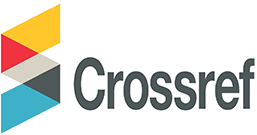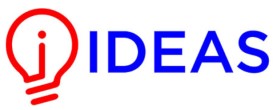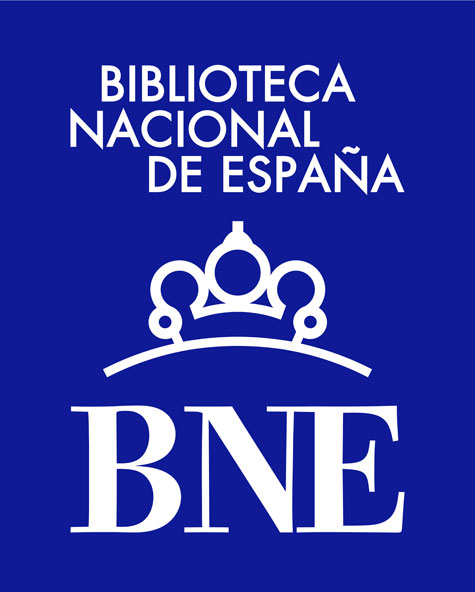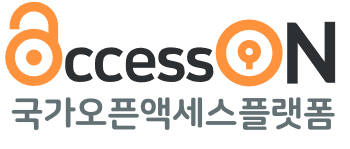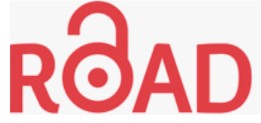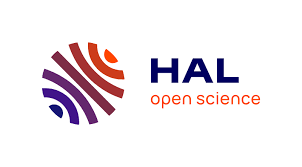The oppression of the kurdish people and their fight for education: a future of social change
DOI:
https://doi.org/10.51896/easc.v1i2.335Keywords:
Education, Mother tongue, Kurdish, Revolutions, Oppression, Multiculturalism, Multilingualism, Women, Self government, Capitalism, AcculturationAbstract
Throughout history there have been numerous nations that have been subdued by the dictatorship of those who are stronger. One of these nations is the Kurdish people, which has been nullified by such civilisations. The abuse of power they have applied on the Kurdish has been reflected in the prohibition of their language, their traditions, their culture and the systematic theft of all of their wealth and natural resources, which have been stolen by those who are stronger. We ask ourselves how it is possible to design an educational system in a village that lives in refugee camps, and that most of the time is under the sound of bombs and death. It is unbelievable to give lectures at schools with such precarious material and human resources, keeping in mind that the oppressive states force them to keep learning in the language of the state they live in, they are obligated to continue with educational work in secrecy while fighting not to lose their culture, language and traditions. Because of this, social initiatives such as the one that took place in Rojava, driven by the Kurdish women in the north of Syria, are a great way to end their isolation and annulment as a nation, serving as a model of multicultural and multilingual cohabitation, from which we can learn and bring to our capitalistic western educational systems.
Downloads
References
Agencia AFP. (2015, 11 de agosto). Una cultura que representa más del 10% de la población siria, renace. El Telégrafo. https://www.eltelegrafo.com.ec/noticias/cultura/1/una-cultura-que-
representa-mas-del-10-de-la-poblacion-siria-renace
Akin, S. (2014). Los derechos humanos y la educación en lengua materna en kurdo. En M. Férez (Comp.), Estos son los kurdos: análisis de una nación (pp. 293-306). Porrúa.
Albani, L. (2021, 3 de diciembre). Una lengua materna prohibida. La tinta. https://latinta.com.ar/2021/
/03/lengua-materna-prohibida/
Ali, B. J., Gardi, B., Othman, B. J., Ismael, N. B., Sorguli, S., Sabir, B. Y., Ahmed, S. A., Hamza, P. A., Aziz, A. H., y Anwar, G. (2021). Educational system: The policy of Educational system in Kurdistan Region in public Kindergarten. International Journal of English Literature and Social Sciences, 6(3), 62-71. https://papers.ssrn.com/sol3/papers.cfm?abstract_id=3851328
Amnistía Internacional. (2023, 17 abril). Informe 2022/23 Amnistía Internacional: La situación de los derechos humanos en el mundo. Amnistía Internacional. https://www.amnesty.org/es/
documents/pol10/5670/2023/es/
Aziz, T. (2023, 17 de septiembre). Cómo la división de la lengua kurda obstruye el acceso a la información. Global Voices. https://es.globalvoices.org/2023/09/17/como-la-division-de-la-
lengua-kurda-obstruye-el-acceso-a-la-informacion/
Biehl, J. (2015, 17 de febrero). Educación Revolucionaria. Rojava Azadi Colectivo por la revolución azadisocial de Rojava. https://rojavaazadimadrid.org/educacion-revolucionaria/
Colemêrg, R. (2022, 7 de octubre). Kaya: “Nuestro sistema es un ejemplo de educación en kurdo en cuatro partes del Kurdistán.” ANF news. https://anfespanol.com/reportajes/kaya-nuestro-
sistema-es-un-ejemplo-de-educacion-en-kurdo-en-cuatro-partes-del-kurdistan-38369
EFE. (2023, 3 de abril). Irán no ofrecerá servicios educativos a las estudiantes que no usen velo. SWI Swissinfo.ch. https://www.swissinfo.ch/spa/ir%C3%A1n-protestas_ir%C3%A1n-no-ofrecer%C
%A1-servicios-educativos-a-las-estudiantes-que-no-usen-velo/48413974
Férez, M. (2020, 20 de enero). La resistencia kurda en Irán. Informe Oriente Medio. https://orientemedio.news/la-resistencia-kurda-en-iran/
Férez, M. y Ala, Z. (2023). La lengua kurda: factor de unidad nacional. En S. Stephan (Comp.), Lengua y Poder: identidad y cultura en las relaciones internacionales del Medio Oriente contemporáneo (pp. 100-117). Poliedro Editorial de la Universidad de San Isidro.
Fernández, E. (2016). Crítica de la razón utópica y ética del sujeto en Franz Hinkelarmmert. Revista Utopía y Praxis Latinoamericana, 21(75), 73-81. https://produccioncientificaluz.org/index.php/utopia/article/view/22326
Fundación Kurda-Instituto de París. (2017, 12 de enero). La población kurda. https://www.institutkurde.org/en/info/the-kurdish-population-1232551004
Hernández, R. R. (2022). La apuesta ecológica del confederalismo democrático en la Federación Democrática del Norte y Este de Siria. Ecología Política, 63, 36-42. http://doi.org/10.53368/EP63IVCep02
Internacional de la Educación. (2023, 17 de febrero). Irak: reconocer la importancia de la enseñanza de lengua e historia kurdas. https://www.ei-ie.org/es/item/27269:irak-reconocer-la-importancia
-de-la-ensenanza-de-lengua-e-historia-kurdas
Isla, J. A. (2019). La vinculación histórica de la cuestión kurda con el Orden Mundial: del Tratado de Sèvres a la Pax Americana. Revista de Estudios Internacionales Mediterráneos, (27), 11-23. https://doi.org/10.15366/reim2019.27.002
Kajjo, S. y Sinclair, C. (2011, 31 de agosto). The Evolution of Kurdish Politics in Syria. Middle East Research and Information Project (MERIP). https://merip.org/2011/08/the-evolution-of-kurdish
-politics-in-syria/
Kurdistán América Latina. (2020, 28 octubre). ¿Cómo comenzó la historia de la educación en kurdo en Rojava? https://www.kurdistanamericalatina.org/como-comenzo-la-historia-de-la-educa
cion-en-kurdo-en-rojava
Lemée, G. (2023). La cuestión kurda. Viento sur: por una izquierda alternativa, (188), 11-23. https://cdn.vientosur.info/VScompletos/vs_0188.pdf
López, V. M. (2019). La confrontación del movimiento cultural y político kurdo en Turquía y Siria: algunas dinámicas transfronterizas. Revista de Estudios Internacionales Mediterráneos, (27), pp. 64-83. https://doi.org/10.15366/reim2019.27.005
Martorell, M. (2016). Kurdos. Los libros de la catarata.
Martorell, M. (2003). Kurdistán. Entre la limpieza étnica y el genocidio. Historia y política: Ideas, procesos y movimientos sociales, (10), 111-140. https://recyt.fecyt.es/index.php/Hyp/article/
view/44762
Öcalan, A. (2012). Confederalismo Democrático. International Initiative Edition.
Organización de las Naciones Unidas. (1989). Convención sobre los Derechos del Niño. https://www.ohchr.org/es/instruments-mechanisms/instruments/convention-rights-child
Organización de las Naciones Unidas. (1992). Declaración sobre los derechos de las personas pertenecientes a minorías nacionales o étnicas, religiosas y lingüísticas. https://www.ohchr.org/es/instruments-mechanisms/instruments/declaration-rights-persons-belonging-national-or-ethnic
República Árabe Siria. (2012). Constitución de la República Árabe Siria. https://www.constituteproject.org/constitution/Syria_2012?lang=es
República de Irak. (2005). Constitución de Irak. https://www.wipo.int/wipolex/es/text/230001
República de Turquía. (1982). Constitución de la República de Turquía. https://www.wipo.int/wipolex/es/text/189924
República Islámica de Irán. (1979). Constitución de la República Islámica de Irán. https://www.wipo.int/wipolex/es/text/332330
Parera, G. (2018, 26 de septiembre). Conocemos los 20 años de autogestión, democracia directa y liberación de la mujer en Makhmur. Rojo y Negro. https://rojoynegro.info/articulo/conocemos-
los-20-anos-de-autogestion-democracia-directa-y-liberacion-de-la-mujer-en-makhmur/
Rojava Azadi. (2016, 29 de diciembre). Contrato Social de la Federación Democrática del Norte de Siria. https://rojavaazadimadrid.org/contrato-social-de-la-federacion-democratica-del-norte
-de-siria/
Schmidinger, T. (2020). Guerra y revolución en el Kurdistán sirio: las voces de Rojava. Ediciones Universidad Alberto Hurtado.
Shabila, N.P. (2021). Changes in the prevalence and trends of female mutilation in Iraqi Kurdistan Region between 2011 and 2018. BMC Women's health, 21, 137 https://doi.org/10.1186/s12905-02101282-9
Shanks, K. (2019). The politics of IDP education provision: Negotiating identity and schooling in the Kurdistan Region of Iraq. International Migration, 57(2), 32-47. https://doi.org/10.1111/imig.12545
UNESCO. (2019). Día internacional de la lengua materna. https://es.unesco.org/commemorations/
motherlanguageday/2019
Downloads
Published
Versions
- 2023-12-01 (2)
- 2023-11-29 (1)
How to Cite
Issue
Section
License

This work is licensed under a Creative Commons Attribution-NonCommercial 4.0 International License.
Usted es libre de:
- Compartir — copiar y redistribuir el material en cualquier medio o formato
- Adaptar — remezclar, transformar y construir a partir del material
Bajo los siguientes términos:
- Atribución — Usted debe dar crédito de manera adecuada, brindar un enlace a la licencia, e indicar si se han realizado cambios. Puede hacerlo en cualquier forma razonable, pero no de forma tal que sugiera que usted o su uso tienen el apoyo de la licenciante.
- NoComercial — Usted no puede hacer uso del material con propósitos comerciales.




